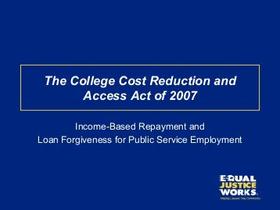- Texas State Technical College (TSTC) was established in 1965 as the James Connally Technical Institute (JCTI) of Texas A & M University to meet the state�s evolving workforce needs. This College was located in Central Texas at the former James Connally Air Force Base in Waco. At the time, Governor John Connally predicted that it would be �the most sophisticated technical-vocational institute in the country.�
School Highlights
Texas State Technical College-Harlingen serves 5,225 students (41% of students are full-time).
The college's student-teacher ratio of 30:1 is higher than the state community college average of 23:1.
Minority enrollment is 93% of the student body (majority Hispanic), which is more than the state average of 74%.
Quick Facts (2025-26)
- Enrollment: 5,225 students
- In-state tuition: $3,264
- Out-state tuition: $7,200
- Student-teacher ratio: 30:1
- Minority enrollment: 93%
- Source: Integrated Postsecondary Education Data System (IPEDS)
Top Rankings
Texas State Technical College-Harlingen ranks among the top 20% of public schools in Texas for:
Category
Attribute
School Resources
School Overview
The teacher population of 177 teachers has stayed relatively flat over five years.
Texas State Technical College-Harlingen
(TX) Community College Avg.
Carnegie Classification
Associates Colleges
Baccalaureate/Associate's Colleges: Associate's Dominant
Institution Level
Less than 2 yrs
At least 2 but less than 4 years
Institution Control
Public
Public
Total Faculty
177 staff
262 staff
School Calendar
Student Body
The student population of Texas State Technical College-Harlingen has stayed relatively flat over five years.
The student-teacher ratio of 30:1 has stayed the same over five years.
The Texas State Technical College-Harlingen diversity score of 0.18 is less than the state average of 0.70. The school's diversity has stayed relatively flat over five years.
Total Enrollment
5,225 students
4,931 students
Student-Teacher Ratio
30:1
23:1
# Full-Time Students
2,128 students
909 students
# Part-Time Students
3,097 students
4,022 students
# Enrollment Undergraduate
379 students
403 students
# Full-Time Undergraduate Students
2,128 students
890 students
# Full-Time Graduate Students
n/a
40 students
# Part-Time Undergraduate Students
n/a
4,166 students
# Part-Time Graduate Students
n/a
47 students
Total Dormitory Capacity
n/a
252 students
% Asian
1%
6%
% Hispanic
90%
46%
% Black
n/a
13%
% White
7%
26%
% Two or more races
1%
3%
% Non Resident races
n/a
2%
% Unknown races
1%
4%
Diversity Score
0.18
0.70
College Completion Rate (Students who graduate in less than 4 years)
19%
19%
College Completion Rate (Students who graduate in 4 years or more than 4 years)
n/a
34%
Average Graduate Earnings (10 Years)
$32,100
$34,600
Tuition and Acceptance Rate
The public in-state tuition of $3,264 is less than the state average of $3,764. The in-state tuition has declined by 46% over four years.
The public out-state tuition of $7,200 is more than the state average of $6,054. The out-state tuition has declined by 46% over four years.
In-State Tuition Fees
$3,264
$3,764
Out-State Tuition Fees
$7,200
$6,054
% Students Receiving Some Financial Aid
95%
84%
Median Debt for Graduates
$7,041
$9,584
Median Debt for Dropouts
$3,500
$5,250
Acceptance Rate
n/a
84%
Source: 2023 (or latest year available) Integrated Postsecondary Education Data System (IPEDS)
School Notes
- Today, the Texas State Technical College System includes four colleges: TSTC Harlingen, TSTC Marshall, TSTC Waco, and TSTC West Texas, which has campuses in Abilene, Breckenridge, Brownwood, and Sweetwater. More than 10,000 students attend TSTC in credit programs alone. TSTC is the only state-supported technical college system in Texas. With a statewide role and mission, TSTC is efficiently and effectively helping Texas meet the high-tech challenges of today's global economy in partnership with business and industry, government agencies, and other educational institutions. TSTC has high graduation rates, exceptional graduate success rates, and an outstanding record in graduating individuals from diverse cultural and socioeconomic backgrounds. Since 1969, the college have focused on technical skills that prepare students for productive careers. Our graduates gain knowledge and skills in more than 30 study areas in engineering, computer information, industrial-manufacturing, health care and general education. TSTC Harlingen offers academic courses to prepare those in the Associate degree programs for academic and future career success with a variety of transferable general education courses in English, math, general psychology, humanities, technical writing and business writing. TSTC Harlingen has certificate and Associate degree programs to help you on your path to a successful future in the career field that most interests you. Technical Programs at TSTC Harlingen includes Agriculture, Information Technology & Telecommunications, Engineering & Manufacturing, Health & Sciences, Business, Commerce & Service and Transportation & Aviation.
Frequently Asked Questions
How much does Texas State Technical College-Harlingen cost?
Texas State Technical College-Harlingen's tuition is approximately $3,264 for In-State students and $7,200 for Out-State students.
What is Texas State Technical College-Harlingen's ranking?
Texas State Technical College-Harlingen ranks among the top 20% of community college in Texas for: Percent of students receiving financial aid.
Recent Articles

Community College Success Rates 2025: Outcomes & Trends
Updated 2025 analysis of community college success rates, completion, transfer, costs, enrollment, and strategies that shape student outcomes.

Community Colleges in 2025: Combating Stereotypes with Impact
Updated insights on how community colleges are dispelling myths, growing enrollment, and expanding pathways in 2025.

2025 FAFSA Changes Explained for Community College Students
A comprehensive guide to 2025 FAFSA changes, what community college students must know, new eligibility rules, timelines, and tips to maximize federal aid.






